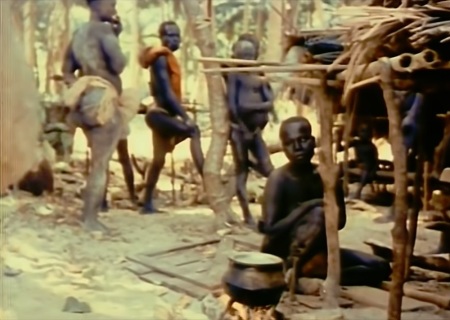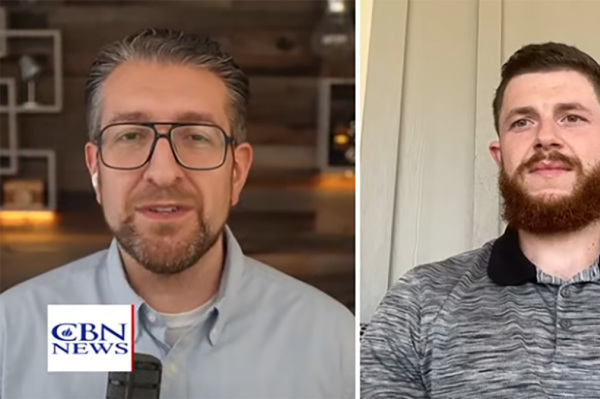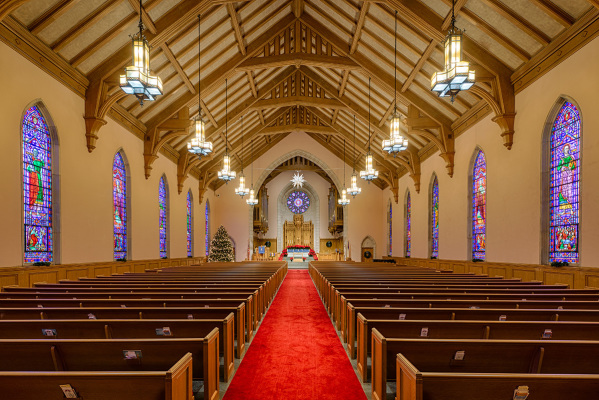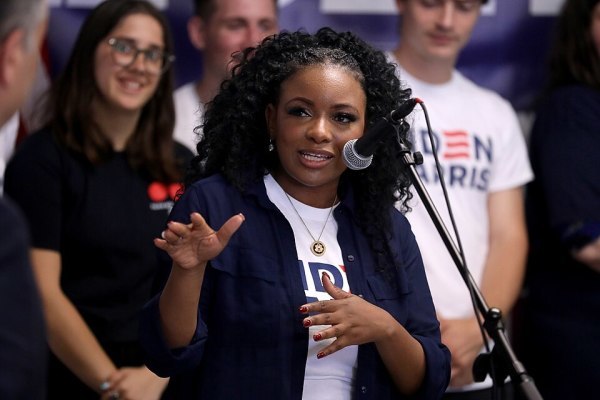'Finishing the task': Misconceptions about Christian missions to the unreached

What about uncontacted tribes?
Much attention has been paid in recent months to the death of the 26-year-old Chau, a Washington state resident who was killed last November while trying to evangelize to the highly isolated tribe on North Sentinel Island in the Bay of Bengal, which is under Indian legal jurisdiction.
Although it is illegal to come within three nautical miles of the island and its indigenous inhabitants who have been known to be hostile towards outsiders, Chau had a strong desire to bring the Gospel to the island tribe and was able to pay local fishermen to take him there.
By all accounts, Chau was aware of the risks associated with his evangelistic endeavor and that he could lose his own life since the people of the island are notoriously hostile to outsiders.
Chau was also heavily vaccinated and quarantined before going in an effort to prevent spreading any kind of illness that could kill the tribal people since they lack immunity to common diseases. It is clear that he didn’t take his mission lightly and did many things to prepare. He was planning on staying with the tribespeople for many years.
But Chau was killed as he tried to approach the island. He is believed to have been shot dead by arrows. His death at the hands of the hostile tribe has sparked a debate over whether or not it is acceptable for missionaries to reach out to isolated tribes that wish to be left alone, especially in circumstances where the government has banned people from visiting those communities.
There is great fear that since these communities are not immune to common diseases, they could be wiped out due to any direct or indirect contact with outsiders.
While some consider him a martyr, other Christians have called Chau’s approach “reckless and unjustifiable” and have referred to Chau as an “invader” who was “killed by his own arrogance.”
“I think the situation of the North Sentinelese where they are on an island and they have effectively been cocooned by the controlling government that has made it illegal for people to visit is quite unique,” Kuan told CP. “There may be undiscovered groups still in Papua New Guinea or in the Amazon, those are the most likely spaces. But we don’t know about that. That is the issue.”
According to Survival International, a secular organization devoted to protecting tribal groups, there are over 100 “uncontacted” tribes throughout the world. The organization defines uncontacted tribes as “tribal peoples who have no peaceful contact with anyone in the mainstream or dominant society.”
Most recently, it was reported that a Christian missionary from Maine, Steve Campbell, may be tried for the crime of “genocide” by the Brazilian government because he entered an area occupied by the remote Hi-Merimã tribe, one of a few dozen isolated communities in Brazil that have almost no contact with the outside world.
Campbell reportedly made contact with the group by mistake after being led by a GPS to the area while working with another tribal group in the area.
Some people, like those at Survival International, believe that these uncontacted tribal groups should be left alone and shouldn’t have any outside influences from people like missionaries.
However, others are wary of what has been deemed the “myth of the noble savage” — the idea that human beings who live close to the land in their natural state prior to colonization were happier, healthier and living in more ideal communities.
“I think [the myth] is harmful because it presupposes that tribal and unreached peoples are perfectly happy and living idyllic lifestyle untouched by modern civilization. That is really an idea that comes from modern civilization, not from them,” Kuan asserted.
“In history, there are stories of peoples around the world who have been reached by missionaries and converted to Christianity. We see that many of those people themselves are grateful for the access to modern medicines and modern technology and many aspects of modern civilization that missionaries and others have brought to them while at the same time acknowledging some losses to their culture. Any kind of cultural interaction always involves growth as well as destruction, if I can put it that way. It is a far more complicated process than saying that is fundamentally a good thing or fundamentally a bad thing.”
On the Chau debate, the question has emerged over whether or not Christians should break the law by approaching people groups that governments say are off limits.
“For Christians who are committed to the Great Commission, I don’t think we really have a choice,” Kuan articulated. “We have to find out the best way of making disciples of all the nations because that is what God is in the business of doing. But, we are to do that sensitively.”
Kuan believes that the best approach is for Christians to work with and pressure governments to allow access for missionary efforts before the missionaries engage those tribal groups in an illegal way.
“The Bible tells us that God has put into authority and power the secular authorities,” Kuan recalled. “In his letters, Peter tells us to subject to the authority and pray for peace that we might have the freedom to practice our faith. I think the Christian’s first instinct, therefore, is to look to obey the secular authorities even when at times those laws seem to run counter to missionary endeavor.”
Kuan added that Christians are in the position where they should be negotiating and having conversations with governments about the possibility of “free access” in order to provide the types of services that Christians have historically provided — health care, clean water and social development works. Through those works, he said, missionaries can share the Gospel.
None of the leaders CP spoke with condone Chau’s method of going on the island alone.
All Nations, the mission agency that supported Chau, defended his journey and insisted in an interview with CBN News that Chau’s contact was legal since news reports from last August stated that the Indian government had lifted its Restricted Area Permit on a number of islands including North Sentinel.
However, the Indian government’s Andaman Island tourism webpage states that “visiting to tribal reserved areas in the Andaman and Nicobar Islands is prohibited.”
Others believe that it would have been more effective for Chau to have worked with local missionaries in the Andaman Islands to figure out the best way to engage a group like the Sentinelese.
“If I were to talk to John Allen Chau, I would say, ‘Have you thought about using local people and talking to them about what they know about it,’” Jones, who grew up as a son of Methodist missionaries in India, explained. “I know there are Indian missionaries that work in the Andaman Islands. I am familiar with Indian Methodists who work in the Andaman Islands as missionaries.”
Others would have suggested that before going, Chau should have reached out to experts, such as the Indian anthropologist who was previously successful in contacting the inhabitants of the North Sentinel, Madhumala Chattopadhyay. Chattopadhyay spent six years documenting the tribes of the Andaman Islands.
“If we were to engage with the North Sentinelese, I would go and find this woman and have her tell us everything she knows,” Kuan explained. “She may not be a Christian and that is fine. We want to find out as much and be as humble as possible in approaching any possibility of helpful Christian contact.”
None of the mission agency leaders that The Christian Post spoke with for this article said that they are actively sending missionaries to engage uncontacted tribes.
Atwell told The Christian Post that although SEND International doesn’t agree with the method Chau chose to reach the North Sentinel Island — SEND practices a “teaming” approach for missions to unreached groups — she still applauds him for his effort.
“He took a risk and he tried to find a way to engage with people who are hostile,” she said. “He did that by observation, listening to other people and finding ways. He brought gifts based on what he has heard from other people and gifts that he thought would be welcome in a way that builds trust.”
“In the end, it was for God to decide what the best method was,” Atwell argued. “Scripture clearly articulates the case for going.”
Follow Samuel Smith on Twitter: @IamSamSmith
or Facebook: SamuelSmithCP






















